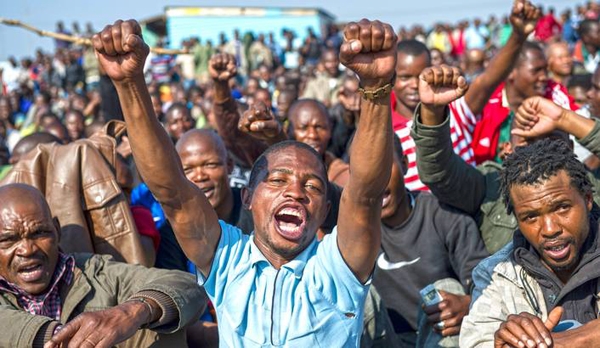Lonmin stops press conference on its finances

Cape Town-based think-tank Alternative Information and Development Centre (AIDC), which was stopped by Lonmin from holding a press conference about the platinum company’s accounts, intends to hold the conference “very soon”.
The AIDC had planned a press conference for last Wednesday 8 October in Johannesburg, to discuss the findings of senior economist Dick Forslund on the company’s financial statements.
But Lonmin brought an urgent action in the Johannesburg High Court and an agreement was reached that the press conference would be postponed and Lonmin would be notified two working days’ in advance of any press conference and supplied with a summary of the material to be released.
“We will stick to that undertaking,” Forslund told GroundUp on Friday. “We will notify Lonmin today, or very soon, about a new press conference and we will send a summary.”
Lonmin had argued that the release of the AIDC findings would undermine the hearings of the Marikana Commission and could rekindle “the very unrest which led to the unfortunate events at Marikana.”
Forslund said his research had found that Lonmin had shifted profits out of the country. Between 2007 and 2012 the company had transferred R1.5 billion in “sales commissions” from its South African operations to its own subsidiary, Western Metal Sales, in Bermuda, and a further R1.4 billion to its own head office in “exorbitant management fees”, he said.
Transfers of this sort are often used to avoid tax.
“When moving R100 million out from the country, legally or not, a company may gain R28 million in lower tax,” Forslund said. “Even more salient is that R72 million is taken away from the wage bargaining table.”
His findings were all based on financial statements which were public documents, he said.
“It is important that we continue to debate about the mining industry and whether it really can’t afford to pay decent wages.”
See this article by GroundUp reporter Barbara Maregele in the Mail & Guardian. Maregele is interning with the Mail & Guardian’s investigative reporting project, AmaBhungane, for three months.
Support independent journalism
Donate using Payfast


This article is licensed under a Creative Commons Attribution-NoDerivatives 4.0 International License.
